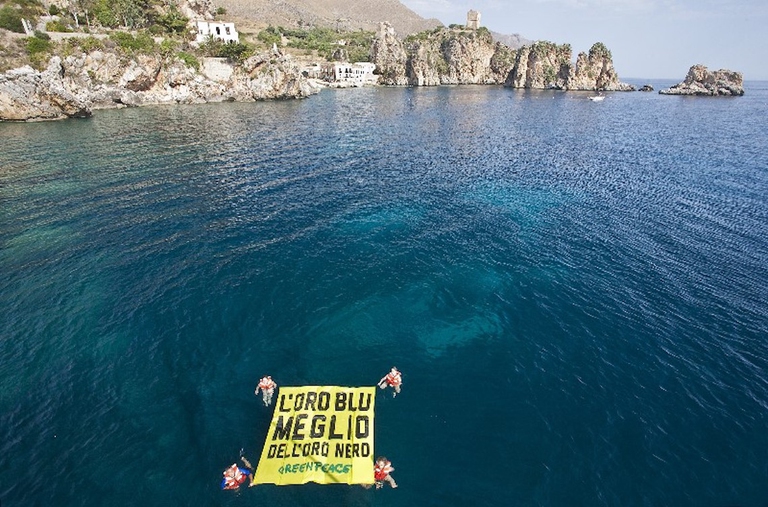
A group of experts in Tokyo suggested pouring radioactive water from Fukushima into the open sea. A marine biochemist explains the consequences of this absurd decision.
Il ministro dell’Ambiente Ségolène Royal ha annunciato una moratoria sulla ricerca di petrolio in mare: “Rischiamo conseguenze drammatiche”.
French Environment and Energy Minister Ségolène Royal has announced the introduction of an “immediate” moratorium on permits to search for hydrocarbons in the Mediterranean Sea. This is due to the high environmental risks of drilling.
While Italy will carry out a referendum vote on offshore drilling on 17 April, Paris is making a historic decision, by imposing a halt due to, on the one hand, the need of protecting the environment, on the other hand the will of adopting a transition to other sources of energy.
“Given the dramatic consequences that can strike the whole Mediterranean in case of an oil drilling accident,” Royal decided to implement an immediate moratorium, “both in France’s territorial waters (up to 12 miles from the coast) and in the exclusive economic zone (up to 200 miles from the coast)”.
There’s more: Royal said that she will ask for “the extension of this moratorium on the whole Mediterranean in the framework of the convention of Barcelona on the protection of marine environment and the Mediterranean coast”. French Minister Royal made her announcement on 8 April, in occasion of the second national conference on ecological transition of sea and ocean, in which participated numerous research institutes and NGOs.
France’s stance is clear: last January, Royal declared that any request of permits to search for oil would have been rejected. Hydrocarbons’ exploitation, continued the Minister, is in conflict with regulations contained in the energy transition law, promulgated in France in August 2015, which includes a reduction in fossil fuel consumption.
Siamo anche su WhatsApp. Segui il canale ufficiale LifeGate per restare aggiornata, aggiornato sulle ultime notizie e sulle nostre attività.
![]()
Quest'opera è distribuita con Licenza Creative Commons Attribuzione - Non commerciale - Non opere derivate 4.0 Internazionale.
A group of experts in Tokyo suggested pouring radioactive water from Fukushima into the open sea. A marine biochemist explains the consequences of this absurd decision.
A federal court in Washington, D.C. has struck down the Dakota Access Pipeline, following years of campaigning by the Standing Rock Sioux tribe.
The Scottish island of Eigg is self-sufficient for its energy needs, relying almost entirely on renewable sources, especially thanks to a coordinated community effort.
President Magufuli in unmovable in going ahead with the Stiegler’s Gorge dam despite conservationists’ warnings of the damage it will cause the Selous Game Reserve’s ecosystem and wildlife.
A large dam along the Luangwa River in Zambia would have posed a serious risk to local people and wildlife, leading hundreds of thousands to oppose it. A call to which the government responded by halting plans to build it.
The first one megawatt solar power plant in the Chernobyl exclusion zone has become operational. This is the first step in a renewable energy development project promoted by the Ukrainian government in the area.
A tanker exploded at a gas and petrol station in Nigeria’s Nasarawa state on the 10th of September, killing 35 people and leaving some burned beyond recognition; 3 citizens had several spine and brain injuries, 2 of them are still on Intesive Care Units. Fela Habila , a local singer, is now stable and out of danger but
The largest tidal power plant in the world will be built in the Larantuka Straits. It will serve 100,000 people and help overcome some of the challenges of energy provision in Indonesia.
Robben Island’s solar energy micro-grid project will produce almost one million kilowatt hours of electricity annually, significantly reducing the cost and impact of buying diesel.









